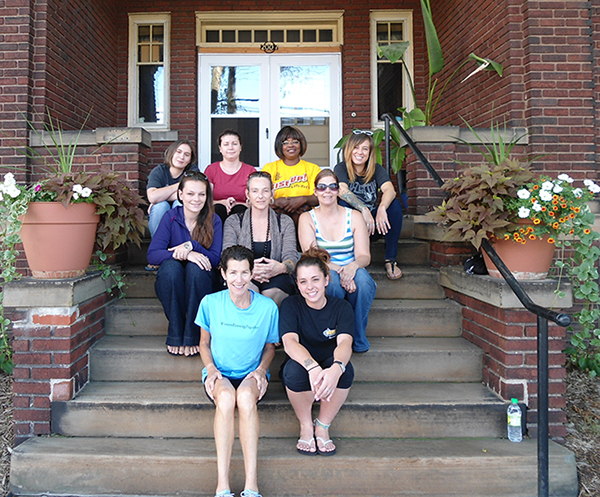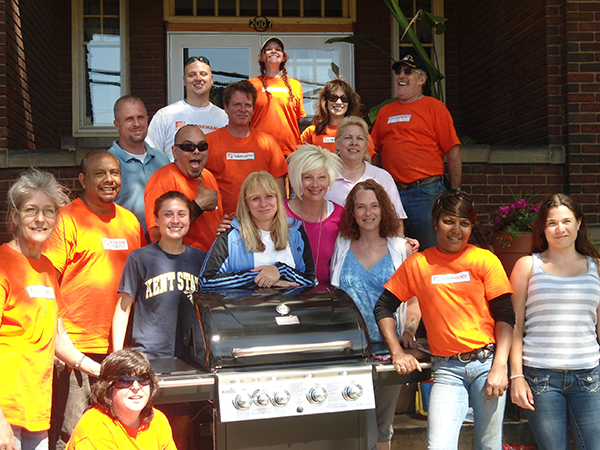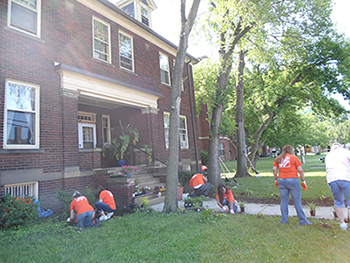
Edna House for Women: A Grassroots Approach to Help Women Gain Sobriety
Women in the cycle of addiction face a lot of difficult barriers when trying to get sober. Shame and embarrassment, financial barriers, and family responsibilities, such as lack of childcare or the fear of losing their children can all deter women from seeking treatment for alcohol and drug abuse.
The Edna House for Women in Cleveland, Ohio is a structured sober living facility designed to provide food, shelter, and sobriety services to women in need regardless of their ability to pay. The Edna House community provides an opportunity for women with substance abuse issues (including alcohol and heroin) who wish to recover from addiction. The Edna House provides women with the tools they need for a lifetime of freedom from the disease of alcoholism and chemical dependency.
The Edna House is a grassroots organization with the basic guiding principle of one woman helping another . . . helping another . . . helping another. Over 86 percent of the women who have completed its program are sober today. In order to increase its retention rate, the Edna House is constantly adding to its curriculum, including the addition of Trauma Recovery Groups and a Job Skills Development Program. The Edna House first opened in 2004 with a tiny house serving three women and now have three facilities, which are home to roughly 50 recovering women at any given time. The Edna House’s staff and tireless volunteer base is composed entirely of alumni and women from the local recovery community. The Edna House alumni association currently has over 300 former resident members. The program does not require evening staff, as they believe that the women need to learn to govern themselves, respect each other, and earn and maintain trust. In addition, Edna House has never had an altercation of any kind.
Group of residents along with volunteers from 117th Home Depot
There are three phases to the program. Phase I is spent largely in group sessions facilitated by alumni and women from the local recovery community. This phase generally last around 90 days and includes traditional recovery-themed discussions as well as yoga, fitness, arts and crafts, and meditation groups.
Discussion topics include early recovery dynamics and principles, anger management, stress management, parenting and family issues, and trauma recovery. Each evening, participants attend sobriety meetings with other recovering women from the community. They are also required to participate in volunteer opportunities, which may include such activities as feeding the homeless, assisting the local parish with special events, and transporting holiday meals to home-bound individuals. They also assist and participate in fundraising activities. GED classes are mandatory for non–high school graduates, and the job skills program helps to prepare participants for reintegration into society.
In Phase II, women are allowed to return to work with more daily independence. They remain in the safe, sober environment, learning to integrate the demands of everyday life while maintaining their recovery as a priority.
Phase III is an option for the women who have completed the first six months and are prepared for less structure in their lives but prefer to maintain residence in the Edna House community. For this phase, there are two off-campus locations within a five-minute walk of The Edna House. Program fees are kept to a bare minimum, to make them extremely affordable while allowing the women the dignity of contributing to their own care.
The Edna House works with the Cleveland Police Department (CPD) and the Cleveland Patrolman’s 
Association, as well as the local court systems, to engage strong community partners. For example, the CPD and Cleveland Patrolman’s Association hold fundraising events, recently raising $2,000 to help buy Christmas gifts for the residents’ children. Their support makes for a safer community, less police involvement, and fewer arrests. Edna House contributes in making the community safe not just as an innovative public health alternative; it gives struggling women a chance to succeed by helping to develop coherent and comprehensive social integration strategies.
For more information about the program or to schedule a site visit to see the work that they do firsthand at Edna House, contact Executive Director, Andrea DeBiasio at 216-281-7791. Edna House (http://ednahouse.org/) or Edna House Facebook (https://www.facebook.com/TheEdnaHouse/)
Kimberly Nath
Staff Writer
COPS Office Photo Contest – March Winner | The HOPE Initiative: A Community Partnership to Battle Opioid Addiction | Edna House for Women: A Grassroots Approach to Help Women Gain Sobriety | A History of Women in Law Enforcement
